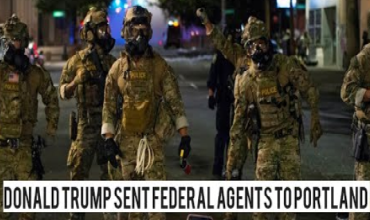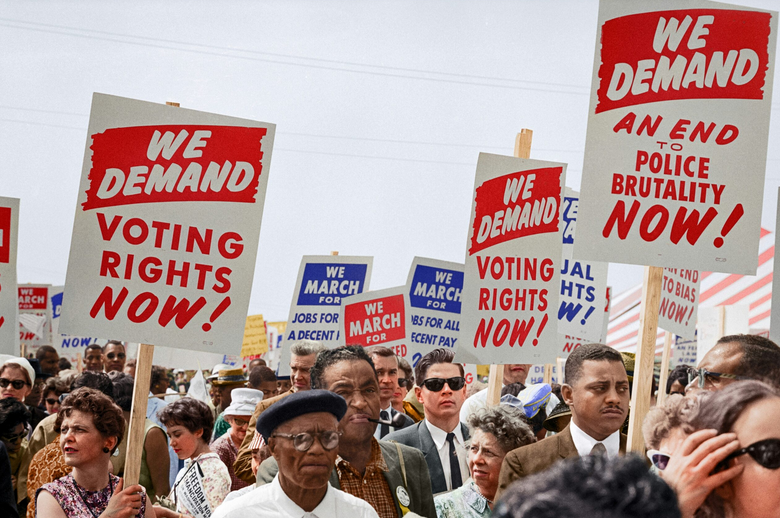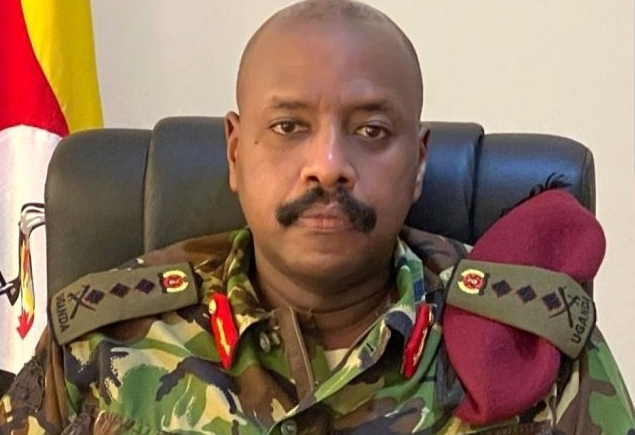[Trump’s Secret Police]
DeFazio: “It’s obvious the Trump administration is using the actions of a small group of agitators causing destruction to Federal property as a cover to carry out wider civil rights abuses on others…We must stop this authoritarian behavior from taking root.”
Photo: YouTube
House leaders introduced legislation to address Trump’s use of federal agents as secret police to target peaceful protesters.
The Chair of the House Committee on Transportation and Infrastructure, Peter DeFazio (D-OR), Chair of the House Committee on Homeland Security, Bennie G. Thompson (D-MS), Representative Suzanne Bonamici (D-OR), and Representative Earl Blumenauer (D-OR) introduced the “Prevent Federal Law Enforcement Abuse in the Protection of Federal Property Act,” legislation to strengthen and clarify 40 U.S. Code § 1315, the statute the Trump administration is abusing in order to deputize Federal employees of the U.S. Department of Homeland Security, including the Federal Protective Service (FPS), to target peaceful protestors in Portland, Oregon and in cities across the country.
“The abuses carried out by Federal agents on peaceful protestors over the past few weeks in my home state of Oregon are utterly terrifying and in direct violation of the essential rights afforded to the people of the United States of America,” said Chair DeFazio, whose committee has jurisdiction over the FPS. “It’s obvious the Trump administration is using the actions of a small group of agitators causing destruction to Federal property as a cover to carry out wider civil rights abuses on others, and I’m deeply concerned that what is happening on the ground in Portland is a trial run for what could take place all over the country— so the time to act is now on our legislation to put in badly-needed guardrails to prevent further abuses. We must stop this authoritarian behavior from taking root in communities across our country, especially the use of Federal agents as political props to escalate tensions and carry out violence against peaceful protestors.”
“The Department of Homeland Security’s police actions in Portland over the past few weeks don’t just damage DHS’ image, they risk threatening the fabric of our democracy and the rule of law,” added Chairman Thompson. “Given that President Trump is threatening to continue this abuse of power, it’s clear we need to restrain the Department’s law enforcement authorities. To start, deployed officers must identify themselves, state the reason for arrest, and clear markings of their agency displayed. I am pleased to join with my colleague from Oregon for introducing this much needed legislation and I hope the House acts on it quickly.”
Proposed Changes to 40 U.S. Code 1315:
- Limits to the Federal Protective Service the employees under DHS that can be designated to protect Federal property and persons on the property.
- To make an arrest without a warrant, a Federal officer under this statute must have probable cause that the person to be arrested has committed, is committing, or is about to commit a felony on or related to Federal property owned or occupied by the Federal Government.
- Makes clear that the arrest must take place on Federal property, in an area in the immediate vicinity of the Federal property, in an area explicitly permitted by an agreement between DHS and Federal agencies and State and local governments, or if part of an active pursuit in which there are specific and articulable facts to support a reasonable belief that the person would escape, destroy evidence, or continue the commission of a felony related to Federal property.
- Limits investigations and any associated surveillance only to offenses that may have been committed against Federal property.
- Clarifies that DHS must enter into agreements with Federal agencies and with State and local governments when expanding the authorities of Federal officers to enforce Federal, State, and local laws. These agreements must also include a requirement that the Federal officers wear body cameras while on duty.
- While performing their official duties, Federal officers under this statute must display insignia identifying their agencies and full names.
- When conducting an arrest without a warrant, a Federal officer must identify herself or himself and her or his agency, inform the individual being arrested of the reason for the arrest, document the details and cause of the arrest, and notify any State or local government that is party to an agreement with DHS.










